
Vatican City, Jun 21, 2018 / 04:29 pm (CNA).- In a June 21 conversation with journalists on the way back from a trip to Geneva, Pope Francis touched on an array of topics, including ecumenism, intercommunion, peace and just war, and refugees.
Please read below for CNA’s full transcript of the Pope’s inflight press conference:
Greg Burke:
Thank you, Your Holiness… we wait a second, here we go… perfect! Thank you in the meantime. To journey, to pray, to work together… we have walked, we have prayed also, at various times, and now we touch on work a little, even to eat after, so that it is seen that to journey together brings fruit.
Today the welcoming- we have seen, after many speeches that it is the mutual respect and it is something more, it is also friendship. However, there is still so much work to do and so many challenges and this interests us normally, the challenges… so, to you journalists… but, if you want to say something first [Holy Father]?
Pope Francis:
Thank you for your work, the day was a little heavy, at least for me… but I am content, I am content [ed. note: or ‘happy’] because the various things that we have done — that is, the prayers to begin, then the speech during lunch it was the most beautiful, then the academic meeting, and then the Mass, they are things that have made me happy… The tiring but beautiful things! Thank you so much! Now I am available to you.
Greg Burke:
Good. We begin with the Swiss. (Arnaud Bedat of L’Illustre magazine)
Bedat:
Holy Father, you have been in Geneva, but also in Switzerland. What are the images and what are the strong, important moments that had an impact on you during this day?
Pope Francis:
Repeat for me.
Bedat:
(repeated)
Pope Francis:
I believe that it is a common word: encounter. It was a day of varied encounters. The right word of the day is ‘encounter,’ and when a person encounters another and feels appreciation for the meeting, this always touches the heart, no? They were positive meetings, good even, beginning with the dialogue with the president at the beginning; it was not a speech of courtesy, as usual… [it was] a deep speech on the profound world debates and [spoken by him] with an intelligence… that I remain astonished, beginning from that.
Then the meetings that you all saw, and that which you did not see is the meeting at lunch, that was very profound [or deep] in the way it touched on many debates, mabe the debate we spent the most time on is “the youth.” Because even all of the churches are concerned, in the good sense, for the youth and the pre-synod that occurred in Rome from March 19 and then attracted enough attention, because there were youth of all [different] beliefs, even agnostics and of all the countries. Think, 315 youth there and 15,000 connected [ed note: via Facebook] that they entered and exited and this perhaps awakened a special interest.
But the word that came to me maybe the whole trip is that it was a voyage of ‘encounter.’ Maybe… I don’t know… an experience of encounter… no rudeness, nothing entirely formal. A human encounter. And this… between Protestants, Catholics and all [people] it says a lot, eh!
Greg Burke:
Thanks, Holiness. Now the German group. Roland Juchem of the German Catholic CIC Agency is here.
Roland Juchem:
Thanks, Holy Father. You speak often of concrete steps toward ecumenism. Today, for example, you again referred to that, saying “Let’s see what is possible to do concretely rather than getting discouraged for what isn’t.”
The German bishops recently have decided to take a step and so we ask ourselves why Archbishop Ladaria wrote a letter that seems like an “emergency brake.” After the meeting May 3, it was affirmed that the German bishops would have had to find a possibly unanimous solution. What will be the next steps? Will an intervention from the Vatican be necessary to clarify or will the German bishops have to find an agreement?
Pope Francis:
Well. This is not a novelty because in the Code of Canon Law, what the German bishops were talking about is foreseen: communion in special cases. And, they were looking at the problem of mixed marriages, no? If it is possible or it isn’t possible. And the Code says that the bishop of the particular Church – this word is important, “particular,” if it is of a diocese – must read that. It’s in his hands. This is in the Code. The German bishops, because they had seen that it wasn’t clear… also some priests did things who weren’t in agreement with the bishop, have wished to study this theme and have made this study that I don’t want to exaggerate, but it was a study of more than a year, and more… it’s more than a year… well done… and the study was restrictive.
What the bishops wanted is to say clearly what is in the Code. And, I read it and said: this is a restrictive document, no? It wasn’t open to everyone. It’s a well thought-out thing, with ecclesial spirit. And they wished to do it for the local Church, not the particular. The thing slid along up until there for the German [bishops’] conference. And there, there is a problem, because the Code does not foresee that. It foresees the bishop of the diocese, but not the conference, because a thing approved by an episcopal conference immediately becomes universal.
And this was the difficulty of the discussion: not so much the content, but this. And they sent the document. Then, there were two or three meetings of dialogue or of clarification and Archbishop Ladaria sent that letter, but with my permission. He didn’t do it alone! I told him: ‘Yes, it’s better to make a step ahead and say that the document isn’t yet mature and that the thing needed to be studied more.’ Then, there was another meeting and at the end they will study the thing.
I think that this will be an orientative document so that each of the diocesan bishops can manage what canon law already permits.
It wasn’t a brake … it is reading the thing so that it goes along the right path. When I made a visit to the Lutheran Church of Rome, a question of the kind was posed, and I replied according to the spirit of the Code of Canon Law. It is the spirit that they are seeking now. Maybe it wasn’t the right information in the right moment, a little bit of confusion, but this is the thing: the particular Church, the Code permits it, the local Church [episcopal conference] cannot because it would be universal.
(journalist inaudible)
But the conference can study and give orientative opinions to help the bishops to manage the particular cases. Thanks.
Greg Burke:
Now from the Spanish group there is Eva Fernandez of COPE agency and Spanish radio
Pope Francis:
They are good, these [journalists] of COPE
Eva Fernandez:
Thank you, Holy Father! We have seen that even the secretary general of the Ecumenical Council of Churches spoke of help to refugees. Just recently we have seen the incident of the Aquarius ship, also the separation of families in the United States. Do you think that some leaders instrumentalize/use the tragedy of refugees. Do they use them…?
Pope Francis:
I have spoken a lot on refugees, the criteria are those that I have said: to welcome, to accompany, to place, to integrate. This is the criteria for all refugees. Then I have said that every country should do this with the virtue of the rule of prudence, because a country should welcome as many refugees as it can and as many as it can integrate, educate, assimilate, give work to. This I would say is the straightforward/easy, serene plan for refugees. Here we are living [with] a wave of refugees that flee from wars and from hunger. The war and hunger of many countries in Africa, wars and persecution in the Middle East. Italy and Greece were very generous in welcoming [refugees], and for the Middle East, Turkey [was also], in respect to Syria, it has received many… Lebanon many… Lebanon has as many Syrians as Lebanese… and then Jordan… other countries, also Spain has received [them? some?].
There is a problem of trafficking migrants, and also there is the problem when in some cases they return, because they should return if this — I do not know/understand well the terms in agreement — if they are in the Libyan water, they should return… and there, I have seen the photographs of the detention centers controlled by the traffickers. Traffickers immediately separate the women from the men… women and babies go… God knows where! This is what the traffickers do! There is even a case that I know of where the traffickers were close to a ship that had accepted barges and… [they were saying] “give us the women and the babies and take the males.”
These traffickers and the detention centers of the traffickers eh, that have returned, they are terrible… terrible! In the detention camps of the Second World War they saw these things! And also the mutilizations in the torture of [forced?] labor and then they threw them to be in the comunes of the men. For this the leaders are concerned that they [the people] do not return and fall into the hands of these people [the traffickers]. It is a world-wide concern! I know that the leaders speak on this and they want to find an agreement, even to modify the Dublin agreement and all of this.
In Spain you have had the case of this ship that is docked in Valencia, but all of this is a mess… the problem of the wars is difficult to resolve. The problem of the persecution also of Christians in the Middle East, also in Nigeria… but the problem of hunger they can resolve, and many European leaders are thinking of an emergency plan to invest in these countries, to invest intelligently, to give work and education in these two things in the countries from which those people come… because — [I’ll say] one thing, not to offend, but it is the truth — in the collective subconscious, is a bad motto: Africa is exploited. And Africa is to be preyed on… this is in the subconscious… ‘eh, they are Africans.’ Always ‘land of slaves.’
And this should change with this plan of investment, and to increase education, because the African people have many cultural riches, many, and they have a great intelligence. The children are very intelligent and they, with a good education, can go beyond… this will be the road halfway to the goal, but in the moment leaders should make an agreement between themselves to go forward with these emergency fixes… this here in Europe! We go in America: in America there is a great migration problem.
(journalist inaudible)
In Latin America too there is an internal migration problem… in my homeland there is a migration problem from North to South and even these people leave the countryside because there is no work and the go to the big cities and where there are these megacities [or huge cities], the slums and all these things, but it is also an external migration to other countries that have work… and speaking concretely of the United States, I back that which the bishops of the country say. I side with them. Thank you.
Greg Burke:
Thanks, Holiness. Now is the English group: Deborah Castellano Lubov of the Zenit Agency.
Deborah Castellano Lubov (Zenit):
Thanks, Holiness! Holiness, in your address today to the ecumenical encounter you made reference to the enormous strength of the Gospel. We know some of the Churches, now the World Council of Churches, the so-called “pacifist Churches” who believe that a Christian cannot use violence. We remember that two years ago in the Vatican there was as conference organized. Do you think that it would be the case for the Catholic Church to unite to these so-called “Churches of peace” and set aside the doctrine of just war? Thanks.
Pope Francis:
A clarification, why do you say that there are “pacifist Churches?”
Deborah Castellano Lubov:
They are considered as pacifist because they have this way of reasoning that if a person (intuits) a violence, at that point they can no longer be considered Christians.
Pope Francis:
Thanks. I understand. Because you put your finger right in the wound, eh? I think that… today at lunch a pastor said that maybe the first human right is the right to hope and I liked that. And this has to do a bit with this and we spoke about the crisis of human rights today. I think that I have to begin from this to arrive to your question. The crisis of human rights is clearly seen. They speak a bit about human rights but so many groups or some countries take a distance, and “yes, human rights,” but there isn’t the strength, the enthusiasm, the conviction. I don’t say 70 years ago but 20 years ago. And this is grave because we have to see the causes, but what are the causes for which we have arrived to this that today human rights are relative. Also the right to peace is relative. It is a crisis of human rights. This I think that we must think it through to the end, or with certainty.
Then, Churches of peace. I think that all the Churches that have this spirit of peace must reunite and work together as we said in the speeches today, myself and the other people that spoke. And at lunch, unity for peace was spoken of. Peace is an exigency because there is risk of a war that we … some have said this: this third world war, if it is done, we know with which arms it will be done… but if there were a fourth, it would be done with sticks because humanity will be destroyed. The commitment for peace is serious, but when you think of the money that is spent on weapons… for this, the religions of peace… is the mandate of God. Peace, fraternity, human unity. All of the conflicts, don’t resolve them like Cain, resolve them with negotiations, with dialogue, with mediations… for example, we’re in a crisis of mediations. The mediation as a juridical figure (very rich) today is in pure crisis. Hope is in crisis, crisis of human rights, crisis of mediations, crisis of peace.
But then if you say that there are religions of peace, I ask myself, where are the religions of war? It’s tough to understand this. It’s tough. But, some groups, I would say in almost all of the small religious groups, I will say a bit simply fundamentalists, seek wars… Also we Catholics have some. They always seek destruction, no? And this is very important to have our eyes on it. I don’t know if I replied. Thanks.
They say that the population is asking for lunch, eh, dinner, that there is just enough time to arrive with a full stomach. It’s just to tell you… a word that I want to say clearly that today was an ecumenical day, really ecumenical! And at lunch we said a beautiful word, a beautiful thing, that I leave with you so that you think on it and reflect, you make a nice consideration of this. In the ecumenical movement we have to take from the dictionary a word: “proselytism.” Clear? You cannot have ecumenism with proselytism. You have to choose. Either you have an ecumenical spirit or you are a proselytizer.
Thanks! I would continue speaking because I like it… but now let’s make the Substitute [of the Secretariat of State] come because it is the last trip he’ll make with us, because now he’s going to change color, but not for embarrassment! We want to say goodbye to him. It’s a Sardinian cake to celebrate!
Cardinal-elect Angelo Becciu (Sardinian-born Substitute of the Holy See Secretariat of State):
Thanks! It is a double surprise of calling me and thanking me in front of you! And then there’s a Sardinian cake. Well, then, we’ll try it with pleasure! I truly thank the Holy Father for this occasion, but for everything, because he has allowed me this magnificent experience of traveling so much with him. At the beginning, he scared me saying, ‘No, I’ve made few trips.’ Do you remember? And then after one, he added another and then another and we said to ourselves, ‘good thing he said there would be few and they’ve been many.’ A magnificent experience of seeing the Holy Father spread the Word of God courageously. My service has been only this: to help him in this. Alright? Thanks to all of you and to those who have helped us! Thanks.
Pope Francis:
Buon appetito, have a good dinner and thanks so much! And pray for me, please. Thanks.
 […]
[…]






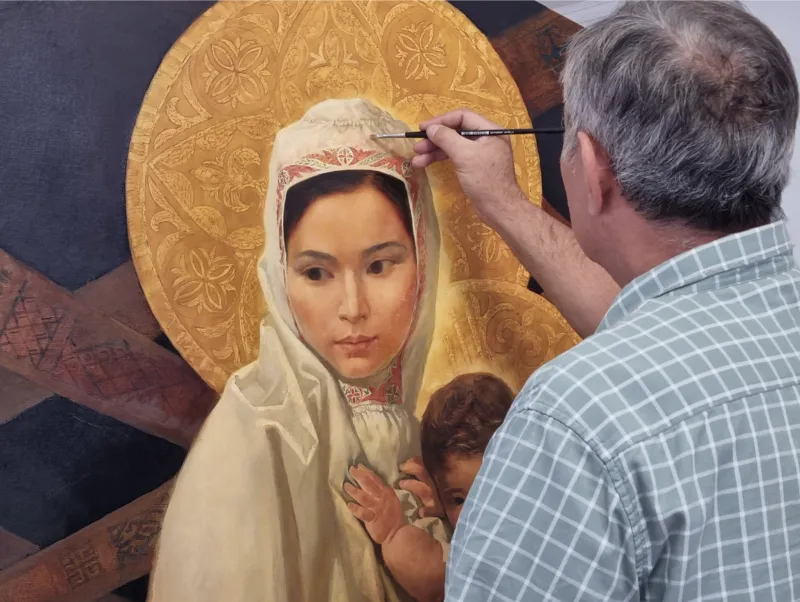
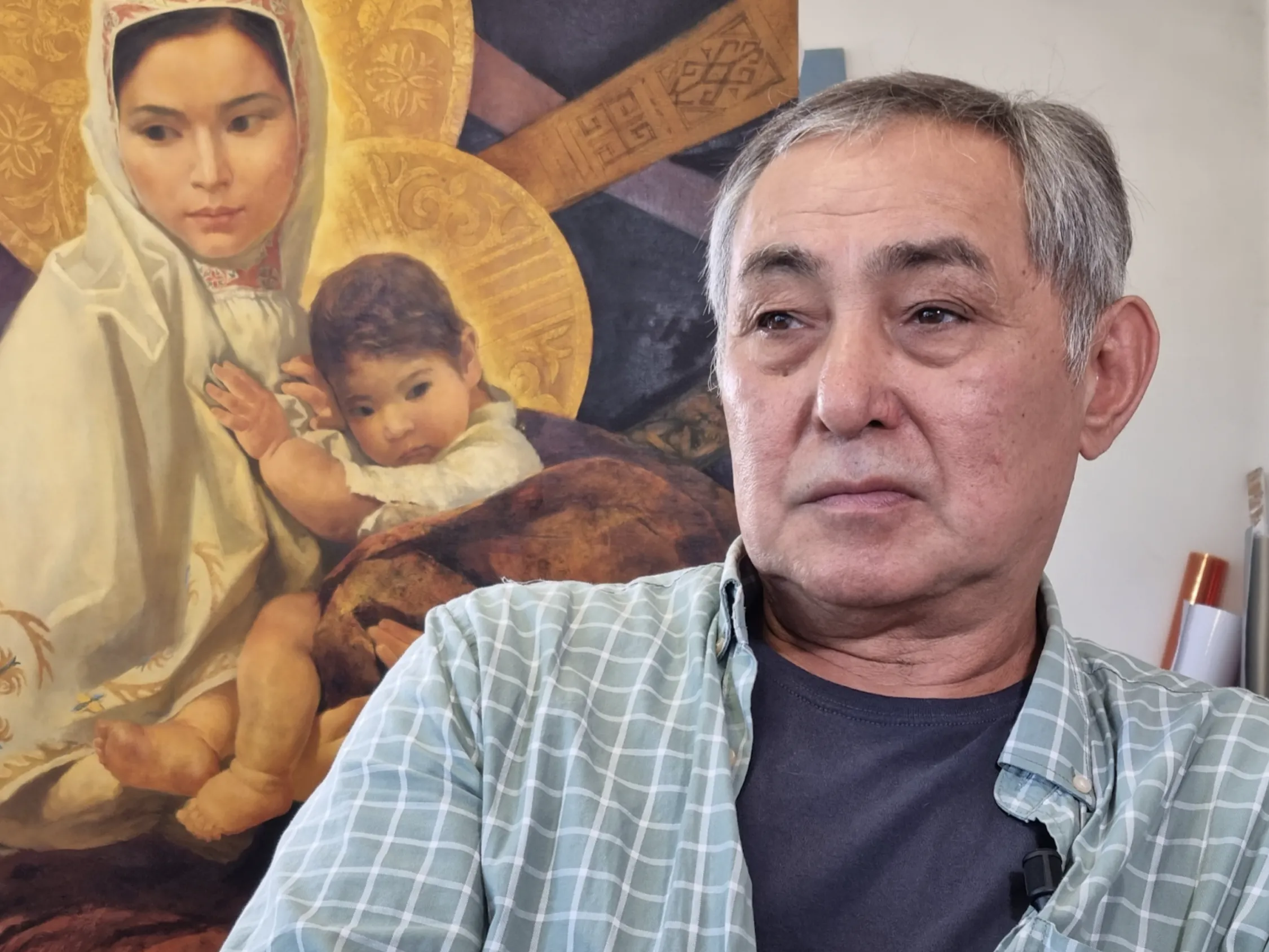

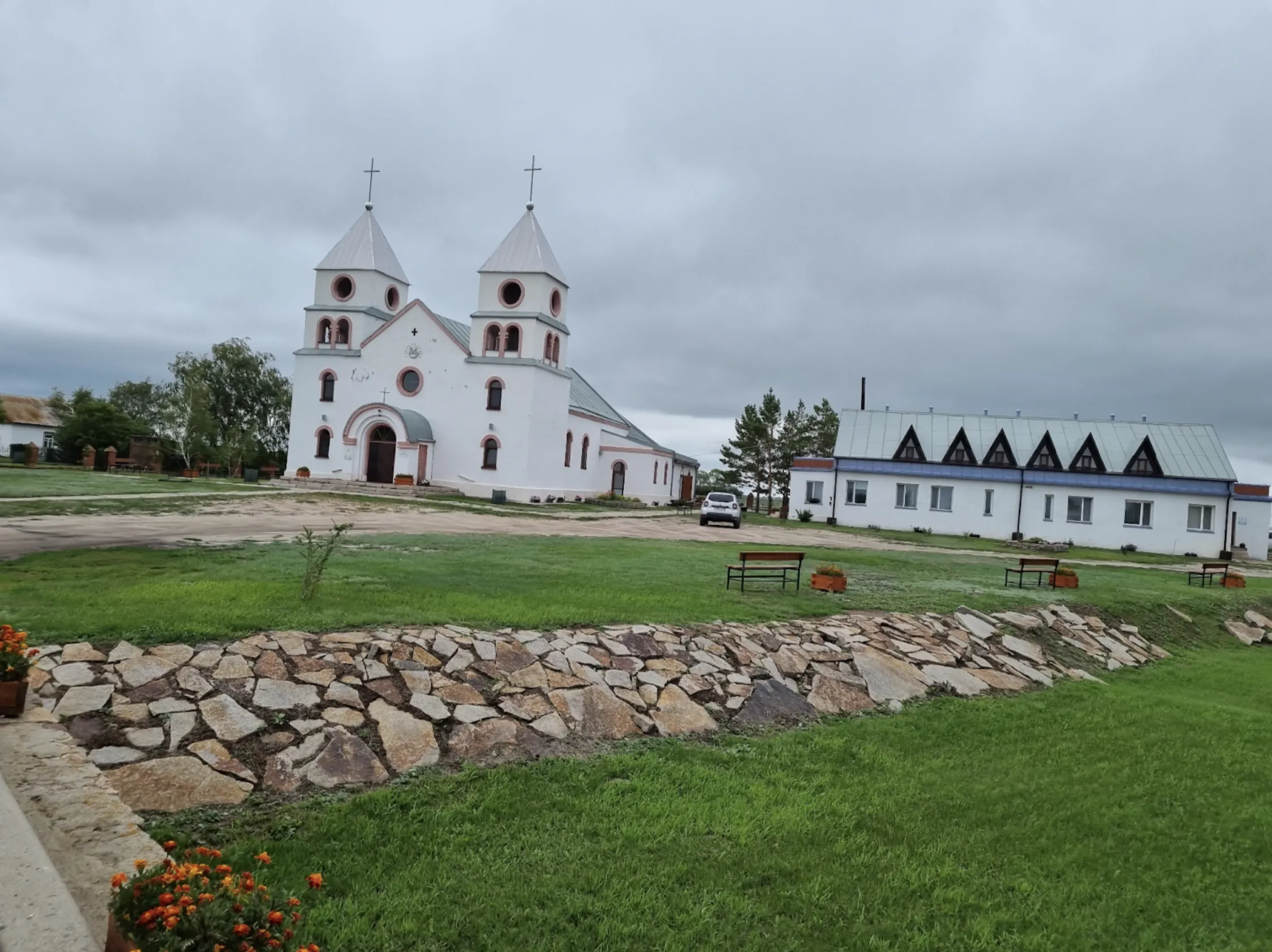
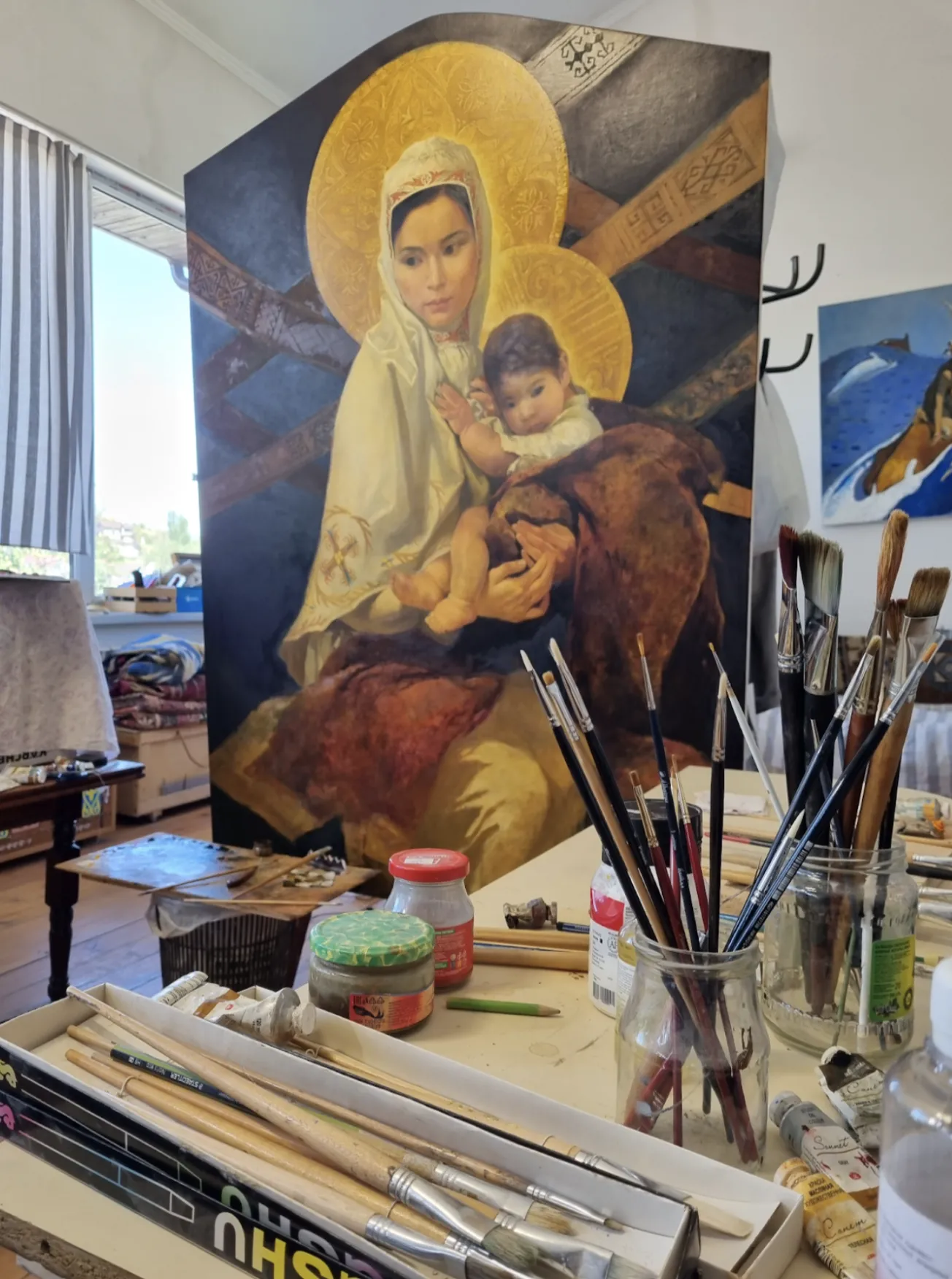
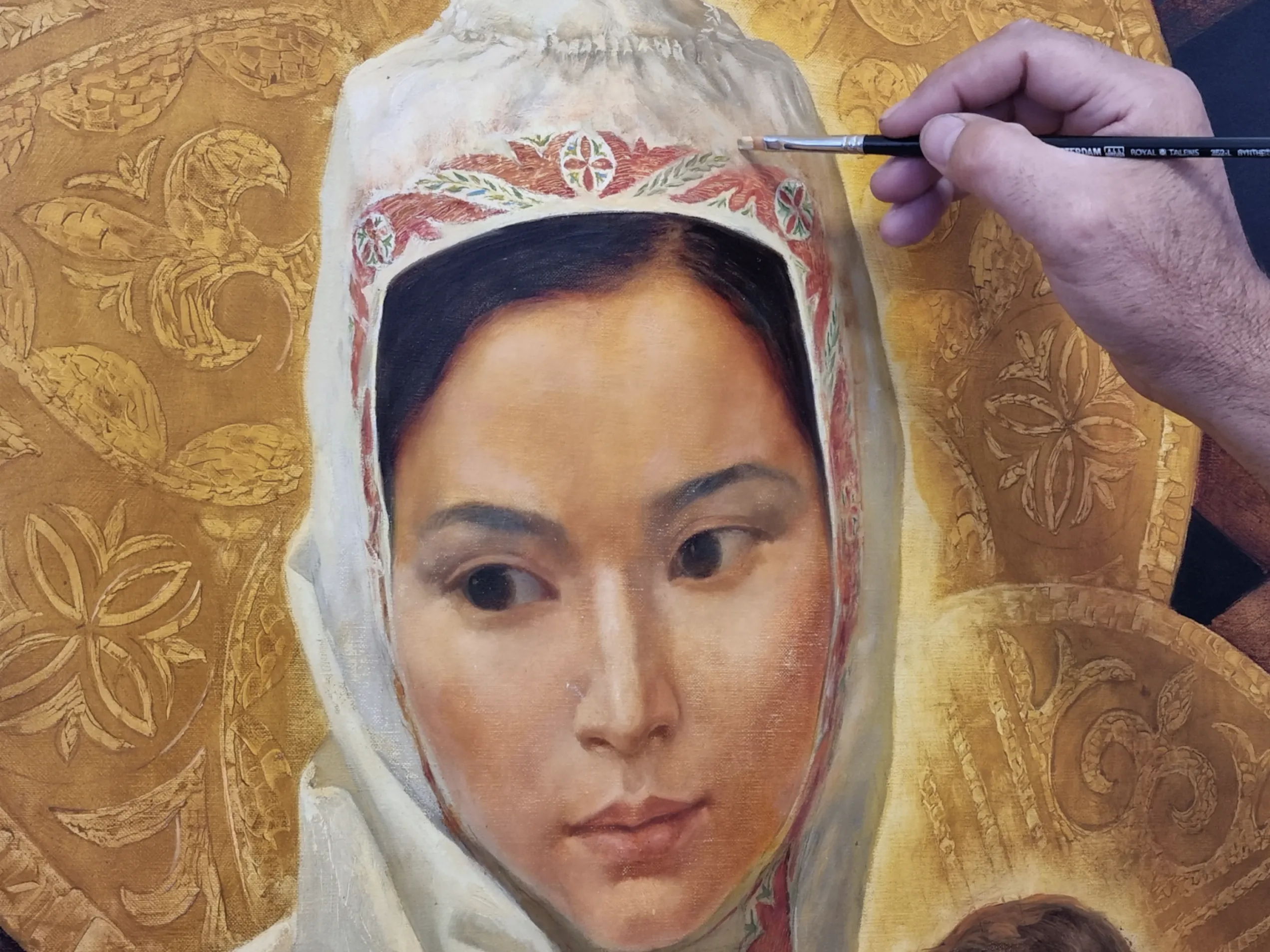

Synod on Synodality…what nonsense.
Not an open issue, although with condition, at this time. Perhaps, further, “from an official point of view”. Nonetheless, a not uncommon diplomatic response weighing possibles v realities that can’t be criticized.
Sr Nathalie correctly lays priesthood aside. She doesn’t mention the diaconate, an ordained order of ecclesial authority in conjunction with the bishop and presbyter. Realistically, it is the diaconate that has been seriously considered since Amazonia. She had previously expressed her views on this more realistic possibility [realistic simply due to proposals for acceptance by some bishops] as shown here when asked.
“It’s still in discernment. It’s rather clear that during the early church we had the experience of the female diaconate. What is very obvious today is that it can’t only be men who can be in ministry. But there are many different ways to be in ministry” (RNS 12.8.21).
It may seem feasible for some as it did for me as a young layman teaching in Africa, knowledgeable of sisters including African who did the priest’s missionary work deep into remote, dangerous areas alone except with Christ. Teaching the Gospels, lecturing [preaching], carrying the Eucharist dispensed during a communion service. In places where there were no priests available.
Since then and ordination the unique specificity of holy orders, female ordination a more pronounced difficulty. Female deacons at the start assisted Paul, the great Apostle himself highly restrictive regarding women in Church, to be silent, heads covered. The women deacons [we don’t have records I’m aware of defining their exact role] whose assistance he happily accepted seems an anomaly. Cardinals Müller, Burke, and others believe holy orders must remain a male institution, as instituted by Christ The favorable response to that position is that Christ did not ordain women.
Nevertheless we’ve arrived at a time when women have received greater, and just recognition for their capacity to contribute to the mission of the Church.
The apostles called for seven MEN of good repute to be ordained deacons and to share in the ministry along with presbyters and episcopoi. I’m certain that if the apostles wanted to include women among their ranks they could have easily found one to include among the seven. But they didn’t.
Let’s face it, we live in a culture that attempts to create its own realities: men can call themselves women; women can call themselves men; men can attempt a marriage of another man and women do likewise. All sorts of permutations of weird notions get promulgated and the populace are easily hoodwinked into normalizing them.
Some of us just happen to subscribe to objective truths and realities.
Atheism is not merely a conscious rejection of an abstract disbelief in the concept of God. Since truth, not some, not a lot, not most, all truth is a reflection of the perfect mind of God, believing that truth changes is to be an atheist.
As a mere layman (sorry, I’m backward) it’s my understanding that the female
“Deacons” rather, assisted women in preparing for Baptism or Confirmation. It’s
so obvious that it would be an offense against modesty for men to do that. It’s so simple, so logical. And the Deacon’s job seems to have been to make sure all
the “dependents” (widows etc, who had no husbands or sons to protect them) were treated equally. When will we put aside all of this nonsense and end this need to satisfy the feminist passion for power. Women have been serving the Church for 2000 years; indeed, while our Lord was still among us. Apparently they were inferior because they didn’t demand parity. It’s time to bring back a bit of humility, and that includes many, many of the prelates (especially in Germany) and clergy too! Our dear Lord, King of kings, did not find serving demeaning.
Dear Father, with all due respect. You say in defense of the Church’s position… “Paul, the great Apostle himself highly restrictive regarding women in Church, to be silent, heads covered.” Without trying to be rude, that utterance by Paul is tantamount to Mafia men when they say of their women… “keep them barefoot and pregnant in the kitchen”.
Women suffered through history as objects, not as equal participants in God’s plan. My Mother not only wore a hat at Mass, rather a veiled hat. Moreover, As a MALE altar server, I was allowed on the altar, but she was not, except when she retrieved the altar linens to be laundered. As I think of those days I find it hard to sleep.
If it comes from paul it must be gospel.
Pray to the Blessed Mother that she will intervene and provide us with a united path to the future.
“For the Catholic Church at this moment, from an official point of view, it’s not an open question,”
.
Sooo, maybe at some future point then? This just doesn’t seem like a “No, that is not possible. Women cannot be priests,” kind of answer.
A woman cannot be, in essence, a Father.
I am sorry I wasted my time reading such a hodgepodge of gibberish. We can all sleep well tonight knowing that the question of women priests has been answered definitively by the French nun who so inspires the BBC and the overfed prelate in the background of the photo. “For the Catholic Church at this moment, from an official point of view, it’s not an open question.” What a ringing endorsement of Church teaching! Why is the question even being raised again when the answer has been given countless times since the crackpot idea first emerged out of the 1960s? Because Francis and his co-conspirators want to keep the issue alive.
Then the piece ends by quoting more inanities from Francis. Women do “better” in politics and management. Female economists “are renewing the economy in a constructive way.” Asking for evidence to support any of these grand assertions is presumably disrespectful. These are the people who run the Church.
I might revise you last sentence to read instead, “These are the people run the Church INTO THE GROUND.”
Janet Yellen is an economist; need I say more?
Isn’t there enough real work to do instead of spending all this time and energy (and money) on what exactly?
What Sr. Natalie (and Pope Francis) miss is that the Spirit calls Christians to sacred ordination, not the Institutional Church. The Church continues to live in its sin of exclusion, in contradiction to the Spirit’s call to women to ordination. To cite two centuries of this sinfulness as proof of its truth is convoluted. Most biblical scholars acknowledge that Paul’s diminishment of women in the Church were words added by later disciples afraid of rocking the boat of first century cultural norms.
There is agreement that he DID write, “There is neither Jew nor Greek, slave nor free, male nor female, for you are all one in Christ Jesus.” Does the Church believe this?
Faithful Catholic women join the Spirit in groaning at the tragic doctrines expressed in this article.
Of course, you are here not thinking with the mind of the Church.
All this talk of ordaining women to the Order of Deacon is a ruse. Deacons are configured to Christ as servant Who came to serve and not to be served. These progressive feminists in the Church have spent their lifetime exorcising the demon of servitude. Rather, they lust for power in the Church and won’t be satisfied until they can get ordained as priests. And then, that lofty position in the hierarchy will not be enough to satisfy their lust for power and they will insist on being ordained bishop. But they won’t stop until one of them can get elected Pope. Of course, it wouldn’t be long before even that didn’t satisfy. No, the only path to salvation is: sacrifice, servitude, death to self, humility, piety, fear of the Lord, etc. These would not appeal to the feminist types.
One should remember. We don’t pick this profession. Speaking for myself I do believe I speak for the disciples as well….we don’t choose persecution and ministry. The calling comes from He that sent for us. I have no choice when it comes to following Jesus. He created me. Shaped me. I am obedient because I am. I am here. Awake. A servant to the calling. You don’t mess with the creator. Walking to the beat of His/Her/Their drum. I could speak about pronouns here and now. As teachers we might want to consider the value of “going there” so one can appreciate the pull we have at demonstrating the Importance of questioning our identity. If we are all God’s children, we should consider it was Jesus himself that told us to listen understand and obey the HS. If we are told to leave, go West, use OUR talents. If the HS leads us into the desert….we go!. I don’t say “no I’m a lady”. Jesus loved his ladies. Jesus calls ladies into healing the sick. The ladies might be called into service to Minister to another lady.
For that matter….we might also be lead into not revealing our sex so as to walk in obedience. God wants relationship with all of us. All the time. Yes, we might make mistakes. We are human. No crime. Pick up the cross ✝️ and experience all we were meant to experience. The disciples were told to bring their swords.
Keep your eyes up. Not back. Stand. Witness. And praise God we are here!
Maybe it was BECAUSE “Jesus loved his ladies” that HE (the fully Divine nature! and fully human nature, both) did NOT call them to be his apostles? And, most of all, he loved His mother (as if mothers still matter): because she was most like Himself—in her “fiat.”
But, there is a good side point about the use of “talents”….We are reminded, for example, of the legendary and female amazon archers who cut off their right breasts, such that their arrows could more sharply find their targets. But now females are signaled cut off both breasts, in order to transition more completely! Do we see a pattern here?…
Yes, the answer to actively homosexual priests (not the cover-story “pedophiles”) buggering young men has been a huge disaster, but now to lesbianize the Church (reducing it from sacramental incorporation into Christ, now simplistically to a lady “called in service to Minister to another lady”?) doesn’t cut it, either.
The “pattern”? Must everything be unisexualized under cover of the disordering pronoun thingy? “Keep your eyes up. Not back. Stand. Witness. And praise God we are here!”
“Here?” The new gospel: Entropy is God!
Finally, women can shed their burkas! Well, maybe not.
If rthe church is the bride of Christ then only men can be a priest.
If the current trajectory of societal convolution continues undisturbed per Newton’s laws of motion, we men, who’s roles have all been replaced and/or made completely redundant, have lost our place altogether.
It is interesting that the word “satan” (the accuser), in Latin, is satana, with a feminine suffix.